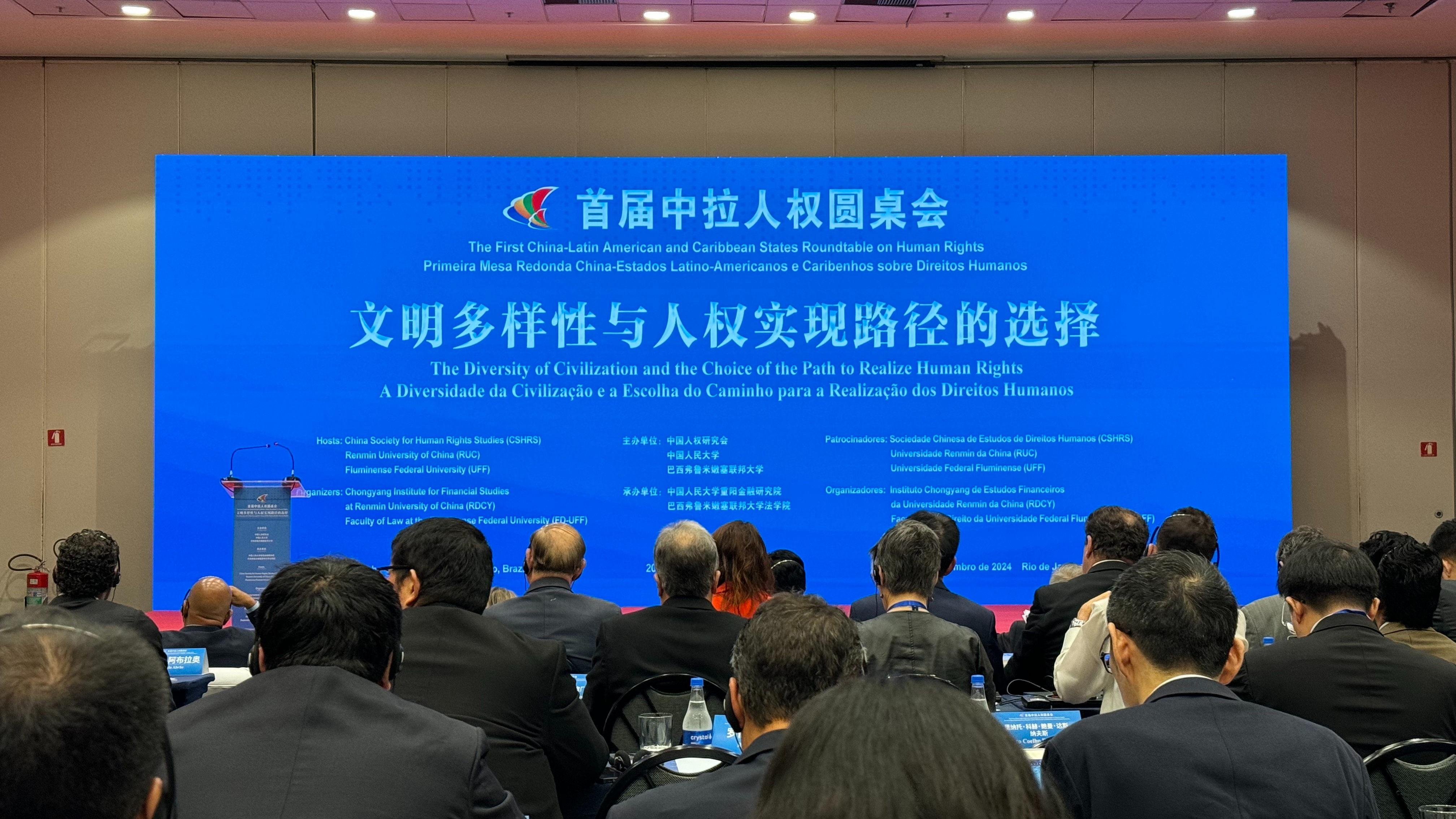WNAM REPORT: China and Latin American countries can work together to respond to human rights challenges and promote the development and progress of human rights, officials and experts said at the first China-Latin America and Caribbean States Roundtable on Human Rights held in Rio de Janeiro on Tuesday.
The event, co-hosted by the China Society for Human Rights Studies (CSHRS), Renmin University of China and Universidade Federal Fluminense, is the first such institutional exchange and seminar between China and Latin America and the Caribbean (LAC), attracting more than 120 senior officials and experts from 17 countries including China, Brazil and Argentina.
“Guided by this spirit of civilizational exchange and the initiative of building a China-LAC community with a shared future, our human rights concepts have become increasingly aligned, while each of us has followed our own unique paths toward human rights development,” Padma Choling, president of CSHRS, said at the opening of the event.
China and LAC have actively collaborated on global development issues, contributing to the drafting of international documents such as the UN Declaration on the Right to Development. “We should continue to uphold the banner of peaceful development, deepen South-South cooperation, and promote human rights through development to ensure all people enjoy equal human rights,” Padma Choling said.
Acknowledging that today’s world is facing growing instability with rising antiglobalization sentiments, increasing unilateralism and protectionism, Padma Choling said both China and Latin American countries should actively engage in dialogue to build consensus on human rights, work together to address human rights challenges and advance the progress of human rights civilizations.
Chinese Ambassador to Brazil Zhu Qingqiao said both China and Latin American countries shoulder common responsibilities in achieving development and revitalization and improving people’s well-being, despite differences in areas ranging from historical processes to social systems to cultural traditions.
Noting the China and Latin American countries, including Brazil, prioritized the eradication of hunger and poverty and the promotion of social equity and justice in national governance, Zhu said both sides are embracing broad space and important opportunities to promote exchanges and cooperation in the field of human rights.
Charles Peter David, former foreign minister of Grenada, told the gathering that the Grenada National Stadium and the Grenada General Hospital are not just physical structures, they are symbols of the collective endeavor between China and Grenada to uplift communities and honor human dignity.
“The partnership between China and the Caribbean is a compelling testament to how cooperative global efforts can profoundly enhance human rights and improve the lives of millions across our nations,” David said.
Under the framework of South-South cooperation, Latin America and China have chosen to move toward a future of sustainable development and can jointly explore new paths and make new contributions to improving global human rights governance, he added.


